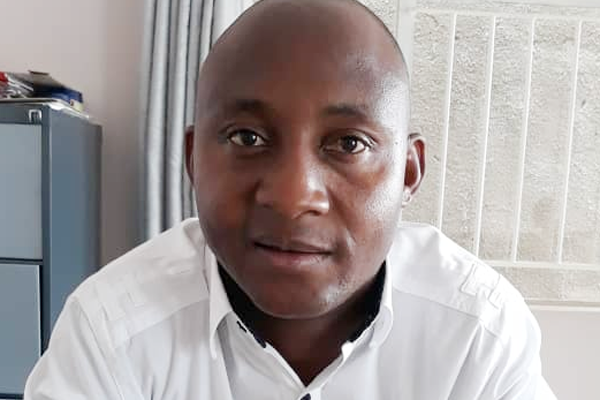
Despite spirited efforts by medical professionals in the fight against malaria, we still witness so many deaths from this parasitic disease. As we approach summer and autumn, we ought to be extra careful as mosquitoes breed fast because of rain and high temperatures. About 210 million people contract this disease annually with mortality of nearly one million people. Africa is the worst hit with Nigeria topping the world list followed by the Democratic
Republic of Congo, Mozambique and Uganda. India records about 4% of all malaria cases globally. Zimbabwe has a significant share in the cases with low-lying areas being problematic. High-risk areas include the eastern border with Mozambique, places such as Muzarabani, Chipinge, Mt Darwin, Rushinga, Gokwe North, Gokwe South, Mudzi and Victoria Falls to
mention, but a few.
What is malaria?This is a disease caused by a parasite and the parasite is transmitted to humans through the bites of infected female mosquitoes. There are many of these parasites, but Africa is dominated by Plasmodium Falciparum which is the worst of them. The other parasites are P Vivax, P Ovale and P Malariae. Once the parasites are inside your body, they travel to the liver where they
mature. After several days, the mature parasites enter the bloodstream and begin to infect red blood cells.
Risk factors.There are some groups of people who should be alert about malaria. These include:
- Children under five years.
- Older adults above 60 years.
- The immuno-suppressed like HIV and Aids.
- Visitors travelling from non-malarial areas to malarial areas.
- Pregnant mothers
- Those who have undergone spleen removal surgery.
- Sub-Saharan populace
A malaria infection is often characterised by the following signs and symptoms, including headache, fever, chills and rigor, nausea and vomiting, muscle pain and fatigue as well as sweating.
ComplicationsMalaria becomes more dangerous when it presents with complications. Some of the feared complications include the following:
- Chamisa under fire over US$120K donation
- Mavhunga puts DeMbare into Chibuku quarterfinals
- Pension funds bet on Cabora Bassa oilfields
- Councils defy govt fire tender directive
Keep Reading
- Cerebral malaria: If parasite-filled blood cells block small blood vessels to your brain, swelling of the brain or damage to the brain can occur. Seizures and coma may appear.
- Organ failure: Malaria can cause kidney or liver to fail or your spleen to rupture. Any of these conditions can be life-threatening.
- Anaemia: Malaria damages red blood cells which can result in anaemia.
- Bleeding tendencies: Malaria can destroy platelets that are required for blood clotting. This can result in bleeding.
- Hypoglycaemia: Severe forms of malaria can cause low blood sugar. Make sure your sugar is checked.
- Breathing problems: Accumulated fluid in your lungs (pulmonary edema) can make it difficult to breathe.
- Death: Death is very common and in Sub-Saharan Africa alone, every 30 seconds, a child below five years dies from malaria.
There are both medical and non-medical preventive measures. You are advised to know about your intended destination and preventive measures sought. Just google for example Victoria Falls has stubborn malaria. The medical causes include the use of drugs for prophylaxis. This includes the following:
Suppressive prophylaxisEffective at killing malaria parasite once it has entered the blood stage. Drugs included are proguanil, mefloquine, Deltaprim and doxycycline. Please note that these should be taken for four weeks after leaving the risk area. Tablets here are taken at least a week before travelling.
Causal prophylaxisDrugs here do not only target the blood stages but also the liver stages. You can stop the drugs after seven days of leaving the risk area. Malarone and primaquine are the drugs currently used. See your doctor for prescription before you travel please.
Non-medical preventive strategies include the following:- Determining your level of risk.
- Staying in well-screened areas at night.
- Use of bed-net impregnated with insecticides.
- Use of mosquito repellent
- Use of long sleeves especially at night.
- Destroy unused water ponds to cut breeding sites for mosquitoes.
- Cut tall grass
Diagnosis can be done by observing the symptoms closely with a history of having travelled to a malarial area as well. Places such as Harare, Chitungwiza and Norton are high altitude areas that have less than 3% of all malarial cases unless it is an imported case from another red zone area. Clinicians should be alert about patients’ history of travelling because missing malaria can be catastrophic.
- Blood checks should be done. A rapid check is often used and it detects Lactate Dehydrogenase enzyme that is produced by Plasmodium Falciparum. Results are within 20 minutes.
- Blood samples can be sent to Laboratories for microscopy and ring forms of P Falciparum can be identified. Treatment
- Simple uncomplicated cases merely need drugs like Coartem which is a combination of Artemether and Lumefantrine. Take as prescribed by your doctors and dosages are calculated against your weight.
- Complicated cases may require more things like intravenous fluids (drips) and drugs that include Artesunate into the blood. Drugs like Quinine diluted into drips can be used if available. In the meantime, make sure your kidneys are tested in terms of their function. Check if your urine has not changed colour or you are still passing adequate volumes of urine lest renal failure can appear. lDr Johannes Marisa can be accessed on [email protected]










